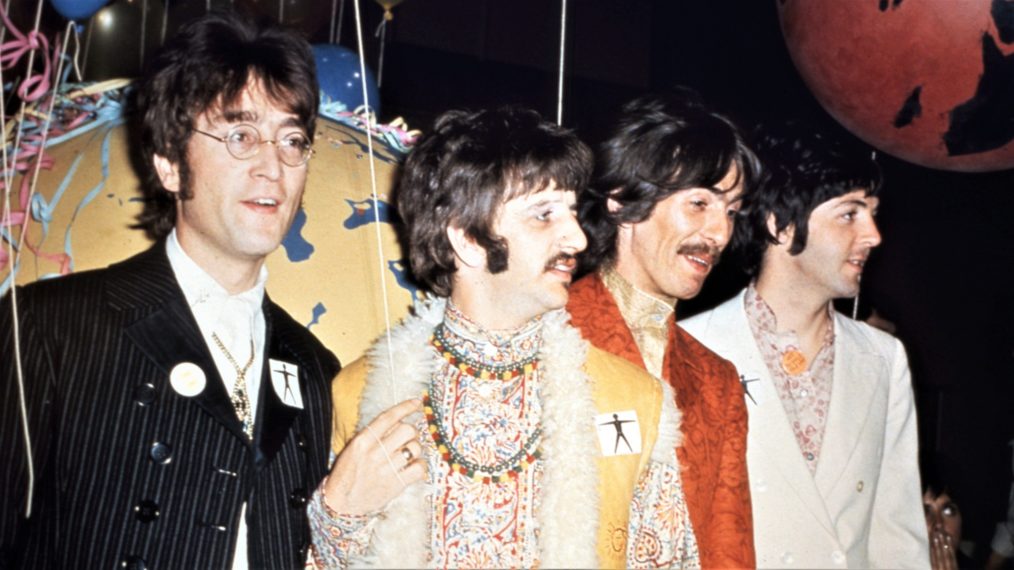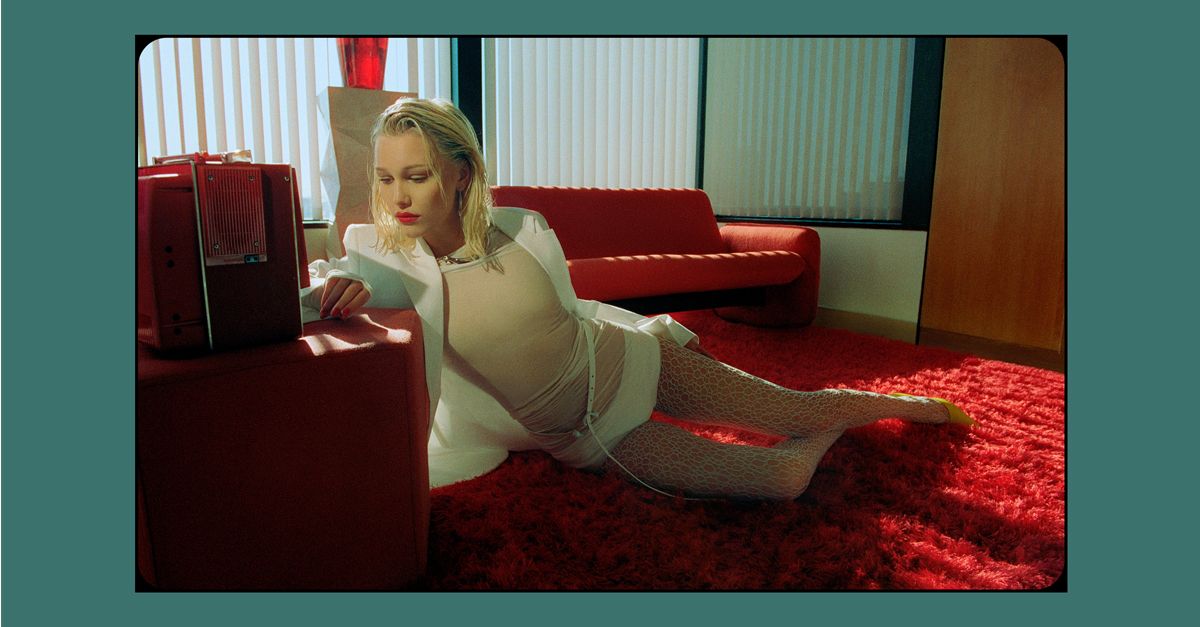Back in March of this year the landmark 1943 film Frankenstein Meets the Wolf Man (dir. Roy William Neill) made its debut. In honor of the film’s 80th birthday, let’s have some fun celebrating the first big screen monster bash.
The Universal Monsters, particularly the trifecta of Dracula, Frankenstein, and The Wolf Man, are some of the most recognizable icons in pop culture, let alone film.
The legacy of Universal’s horror output from the 1930s and 40s has reached every corner of the zeitgeist. The visage of Bela Lugosi’s Dracula, Boris Karloff’s Monster, and Lon Chaney Jr’s Wolf Man have reached a point of cultural saturation that few fictional characters ever reach.
One of the most remembered films from this cycle is of course, Frankenstein Meets the Wolf Man. It’s hardly a new or astute observation to connect today’s mega blockbuster shared universe franchises with the Universal Horror films. While the first ever cinematic crossover was actually all the way back in 1910 with the French serial Arsène Lupin contra Sherlock Holmes – where fictional French thief Lupin met with Conan-Doyle’s iconic detective, Frankenstein Meets the Wolf Man was the first film to cement the idea into popular consciousness.
The novelty of the film must have been something quite special at the time and watching it today through the lens of where franchise filmmaking is now makes it even more interesting outside of being a rather solid film in its own right.
The myriad behind the scenes stories and histories of the Universal Monster films are more detailed and involved than the films themselves, and Frankenstein Meets the Wolf Man has a fair share of fun and interesting tidbits to discuss.
Born from an offhand joke by the film’s screenwriter Kurt Siomak (who also penned The Wolf Man) that was told to producer/director George Waggner (director of The Wolf Man), Frankenstein Meets the Wolf Man acts as a straight sequel to The Wolf Man. It’s also the 5th entry in the Frankenstein series. The general consensus of the film is that it’s a pretty damn good follow up to The Wolf Man and a pretty shaggy Frankenstein film.
The story feels convincing and natural despite obvious and well documented continuity errors. Why the Monster (Bela Lugosi) is frozen in ice when the castle burned down in Ghost of Frankenstein being one example. This film was made 80 years ago. Our contemporary idea and obsessive fretting over continuity and “canon” wasn’t really a concern back then so I think most of (but not all) of these hiccups are forgivable, especially in a modern context.
After being accidentally revived from his undead rest by two grave robbers, the tragically cursed Larry Talbot (Lon Chaney Jr.) seeks aid to help him end his life to break the werewolf curse. In his quest Larry is directed to Castle Frankenstein, where he uncovers the frozen body of the Monster, who he is fated to do battle with.
Lon Chaney Jr. was the one constant presence in the Universal Horror films. He was not only the one actor to never be recast in his signature monster role, he also played all of the other titular monsters at some point as well – Frankenstein’s Monster in Ghost of Frankenstein, a Dracula in Son of Dracula, and the Mummy in multiple sequels to the original film.
Still, it is the tortured part of Larry Talbot/The Wolf Man that Chaney is best known for. His open face seems to wear the burden of his curse in every expression. While the character’s journey to rid himself of the beast could be accused of being repetitive later on, his character as portrayed in Frankenstein Meets the Wolf Man may be even more compelling than in the original film.
Having your main protagonist actively looking to end their own life is rather grim for a film of this era. Hell, even today. Chaney Jr. sells Talbot’s desperation in every plea, every outburst of pained frustration. The role is also a very physical one inside the make-up and out. Chaney Jr. was a big guy and he imbues Talbot with a sense of barely contained hysterics. He’s almost always on the verge of a breakdown and makes it wholly convincing in not just his dialogue delivery, but how he holds himself physically.
Chaney Jr. is not the only actor to reprise their role from The Wolf Man. Maria Ouspenskaya as the gypsy woman Maleva also makes a return. Ouspenskaya is quite good in her expanded role. Being the character to first inform Talbot of his affliction in the original film, he returns to her for help. She feels great sympathy for him and agrees to assist him in his mission by bringing him to Castle Frankenstein where hopefully the notes of the deceased Ludwig Frankenstein (from Ghost of Frankenstein) can put an end to the werewolf curse for good.
The relationship between Larry and Maleva doesn’t have much screen time, but it’s a genuinely touching aspect of the story. Ouspenskaya, like Chaney Jr., has a very open and expressive face and she uses it to great effect – giving Maleva more on screen than what is on the page. She feels deep sympathy and responsibility for Larry, almost taking on a parental role for him.
Frankenstein Meets the Wolf Man is very much a movie of two halves. The first is a straight up sequel to The Wolf Man and the second is where we enter into crossover land with Frankenstein. Although I don’t think The Monster aspect of the film is as dire or awkward as it has been described over the years, the excising of vital plot elements and continuity do make for a more wobbly second half.
In Ghost of Frankenstein, The Monster was rendered blind after Ygor’s brain was put into its body. This aspect and full lines of dialogue were excised from the final version of Frankenstein Meets The Wolf Man, making many of scenes featuring Bela Lugosi’s (or his stunt double) portrayal of The Monster a tad awkward as he stumbles around, arms outstretched in the cliched pose we associate with the character. The pacing in the second half also starts to stagnate just a little as Talbot goes searching for Ludwig’s daughter, Baroness Elsa Frankenstein (Ilona Massey). The back half of the film sets new players in motion with Elsa and her doctor friend, Mannering (Patric Knowles), in order to stage the climatic experiment of draining both Talbot and The Monster of their life forces.
The introduction of Mannering especially feels obligatory, because we need a scientist to go mad with power yet again. Mannering is nothing more than a walking plot device.
Even though the second half of the movie begins to feel rote, the finale does give us all the first real cinematic monster brawl.
Another knock you’ll hear about the film is that the fight isn’t all that lengthy and thus disappointing. Half true. The stunts are simple, but tactile and very physical. The novelty alone of seeing two of cinema’s most indelible monsters duke it out still carries a sense of glee to it, even 80 years later. With today’s eyes, there is a feeling of seeing pop culture evolve as The Monster and The Wolf Man scrap. With decades in the rearview and other monster vs. monster films owing their existence to Frankenstein Meets the Wolf Man, it’s amusing just how quaint the film feels at the end of the day. I don’t mean that derisively, only that the “VS” gimmick is mostly regarded as just that – a gimmick.
The birth of Frankenstein Meets the Wolf Man was very much a gimmick, but the film itself is free from any of the recognizable, modern trappings of franchise building and synergy. It’s just a story that happens to be a crossover between both Frankenstein and The Wolf Man. Neill directs the film with a steady hand. The opening scene in the cemetery is quite gorgeous, and there is enough of that classic Universal charm and gothic atmosphere to keep the film entertaining all these decades later.
So wait until the sun is just about to slip under the horizon, warm up some apple cider and keep those spooky vibes going strong. It’s never a bad time for some classic Universal Horror.














































































:quality(85):upscale()/2023/08/01/674/n/1922564/84fee9ba64c920a5e9ffc3.17504815_.jpg)


